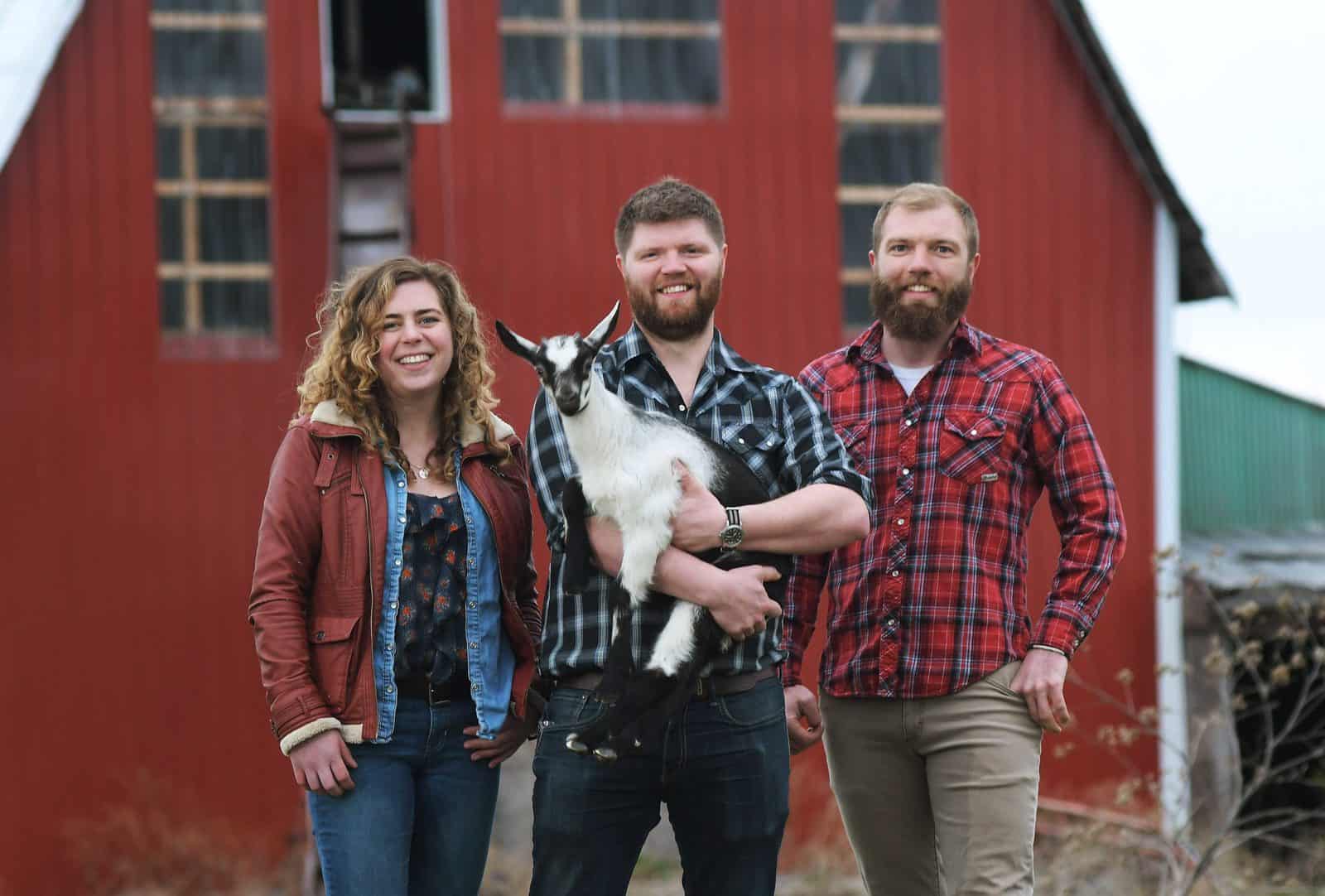
Three weeks ago a photo appeared at the top of social media feeds featuring cascades of milk spilling from the back of a truck, pooling in the grass, underneath the headline, “Help make cheese with surplus milk for Food Banks.” The attached GoFundMe link was quickly shared to hundreds throughout the Finger Lakes community, and by the end of the day had surpassed its original goal of $20,000.
The campaign was organized by artisan cheesemakers Lively Run Dairy in Interlaken, New York who, at the start of the COVID-19 shutdown, had struggled to sell their cheese.
“The first few weeks of COVID, we were in deep shit,” says Head Cheesemaker Pete Messmer. “Our sales dropped by 50 percent because half our sales are to restaurants, or distributors who service restaurants. It was pretty scary; I thought we might not exist in a month.”
While Messmer could halt his production if needed, he knew the dairy farms from whom he purchases fluid milk couldn’t just stop producing. So Lively Run came up with a plan: raise money to buy surplus milk (that would otherwise be dumped) from nearby dairies, and turn it into cheese for local food banks in need.
Amid the widespread community support for the plan (at time of writing, the fund has surpassed $47,000) came some concerns. Many wondered how there could be both a surplus of milk and a shortage of dairy products in grocery stores and food pantries. In the commercial dairy industry, producers often belong to cooperatives that purchase 100 percent of their milk; In the wake of COVID-19, these cooperatives may not be buying as much product, or are buying at a lower price. And companies that manufacture popular dairy products such as shredded cheese and sour cream are often set up to produce bulk goods for restaurants and schools, with no ability to pivot to making smaller servings for household consumption. This breakdown in the supply chain is what many consumers are currently experiencing in their local dairy aisles.
Messmer explains that, along with the halt in sales to restaurants and schools, a regional grocery store chain also suspended their wholesale artisan cheese orders. “At the beginning of the COVID crisis, they said, ‘We’re going to stop buying from you because our logistics are barely enough to keep up with our main staples’,” says Messmer. Under the intense strain of changing buying habits, the store could not afford to keep stocking artisan goods like their cheese.
As Lively Run saw sales decline rapidly, they began to hear of small goat and cow dairies in even more diresituations. About 2.5 hours north in the Adirondacks region of New York, their friends at Hidden Pastures Goat Dairywere also struggling.
“We dumped milk for six weeks because we didn’t have anywhere else for it to go,” says Hidden Pastures co-owner Blake Place. “And that’s horrible because being a farm, we can’t shut the lights off—we have to feed the animals, we have to pay our grain bill.” At Hidden Pastures, much of the milk is sold to small creameries to be made into cheese, as well as to restaurants. When COVID-19 struck, projected cheese sales plummeted, so the cheesemakers had to stop buying. Dumping milk seemed like the only option for Place.
“There is nothing worse than taking a product you worked so hard to create and literally dumping it because you can’t find a place [for] it,” says Place. “It was very sad, because people needed food. But there was a disconnect on how to get our food to people.”
That disconnect is exactly what Lively Run is trying to fix. Messmer can turn milk into chèvre within three days, and the money from the fundraiser will enable Lively Run to make over 7,000 pounds of cheese. Between April 24th and May 12th, they delivered 950 pounds of cheese to 11 pantries, who gladly took it. “Small companies like us who are nimble can quickly switch over to retail packaging—but the challenge is getting the food to people,” says Messmer. “There’s more demand than we can keep up with.”
In order to help more small producers, Lively Run is now working with Ithaca-based organization Center for Transformative Action to secure funding to reproduce this model for other cheesemakers in New York, and possibly across the US. CTA is an independent 501(c)3 organization affiliated with Cornell University, and would act as the fiscal sponsor for the program “Lively Run Cheese for New York.”
Governor of New York Andrew Cuomo recently announced a new program called Nourish New York, and Messmer hopes that small producers will be included. The state plans to work with farmers to purchase products and send them to food banks in need.
“We’re going to be okay,” says Messmer. “But I know of other small producers in the state who are in dire need.”



